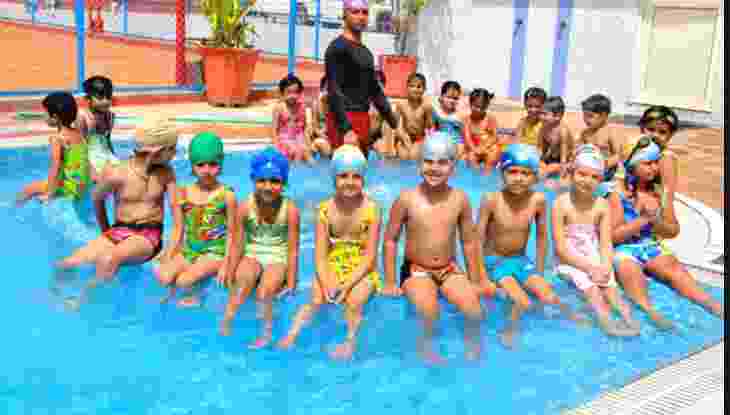Did you know that extreme heat has killed more student in recent years than all other natural disasters combined? Between 1999 and 2009, there were an average of 658 heat-related deaths per year in the United States. knowing how to prevent overheating and how to identify warning signs from heat injury can be the difference between a fun and healthy summer, and something much more serious

How to Keep Yourself Safe from Strong Heat Stroke
To know about Keep Yourself Safe from Strong Heat Stroke we will discuss on following topics which may be useful for younger students.
Causes of heat stress
There are many factors which can cause heat stress and heat-related illness, including:
Dehydration – to keep healthy, our body temperature needs to stay around 37°C. The body cools itself by sweating, which normally accounts for 70 to 80 per cent of the body’s heat loss. If a person becomes dehydrated, they don’t sweat as much and their body temperature keeps rising.
Lack of airflow – working in hot, poorly ventilated or confined areas.
Sun exposure – especially on hot days, between 11am and 3pm.
Hot and crowded conditions – people attending large events (concerts, dance parties or sporting events) in hot or crowded conditions may also experience heat stress that can result in illness.
Bushfires – exposure to radiant heat from bushfires can cause rapid dehydration and heat-related illness. Bushfires usually occur when the temperature is high, which adds to the risk.
Some drugs–, such as ecstasy and speed, also raise the body’s temperature, which can lead to heat stress.
Symptoms of heat exhaustion
Heat exhaustion and heat stroke are the most common problems when the body is exposed to excessive temperatures. Heat exhaustion occurs when the body overheats from prolonged exposure to high temperatures.
- Weakness;
- Headaches;
- Blurred vision;
- Nausea;
- Staggering;
- Paleness;
- Profuse sweating;
- Weak pulse;
- Faint breathing.
- Very high body temperature
- Red, hot, dry skin (no sweating)
- Dry swollen tongue
- Rapid pulse
- Throbbing headache
- Dizziness, confusion, nausea
How can Reduce from Heat Stroke
Here are a few tips to reduce the chance of heat stroke which must know to all student specially younger. Suggestions for preventing heatstroke include:
Wear Appropriate Clothing: Choose lightweight, light-colored, loose-fitting cotton clothing. It help the evaporation of sweat resulting cooling occur.
Stay Cool Indoors: Stay in an air-conditioned / cooler place as much as possible. If your home does not have air conditioning, go to the public library—even a few hours spent in air conditioning can help your body stay cooler
Minimize Outdoor Activities : Try to limit your outdoor activity unless it’s coolest, like morning and evening hours. Rest often in shady areas so that your body has a chance to recover. Avoid outdoor coaching/ tuition / summer camp. follow self study / online.
Wear Sunscreen: Sunburn affects your body’s ability to cool down and can make you dehydrated. If you must go outdoors, protect yourself from the sun by wearing a wide-brimmed hat, sunglasses, and by putting on sunscreen
Do Not Stay in Cars: Cars can quickly heat up to dangerous temperatures, even with a window cracked open. While anyone left in a parked car is at risk, student are especially at risk of getting a heat stroke or dying. When traveling remember to do the following:
Drink Plenty of Water:- Drink plenty of water or other cool, non-alcoholic fluids even if you’re not thirsty
Take light and Fresh Food: Eat smaller meals more often and cold meals such as salad.
Bathing Morning and Evening: Keep yourself cool by using wet towels, putting your feet in cold water and taking cool (not cold) showers.
Eat Seasonal Fruit: Cucumber watermelon and mango juice help avoid dehydration.
Avoid Fast Food: Fast food eating habit should be strictly avoid at any case.
Break Your Study with Interval: Do not study a long duration at a time but break it into many piece of duration.
Avoid Tour in Warmer Area: Do not plane a tour for a warmer area.
visit also
ICSE Textbook Solution for Class-10
ISC Textbook Solution for Class-12.
Thanks


